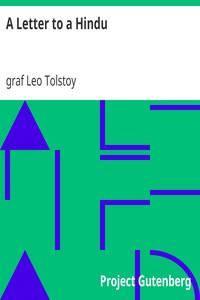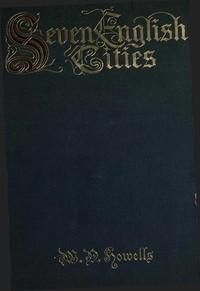Read this ebook for free! No credit card needed, absolutely nothing to pay.
Words: 58947 in 29 pages
This is an ebook sharing website. You can read the uploaded ebooks for free here. No credit cards needed, nothing to pay. If you want to own a digital copy of the ebook, or want to read offline with your favorite ebook-reader, then you can choose to buy and download the ebook.


: Beside the Bonnie Brier Bush by Maclaren Ian - Scotland Social life and customs Fiction Bestsellers American 1895-1923
DOMSIE
A LAD O' PAIRTS
The Revolution reached our parish years ago, and Drumtochty has a School Board, with a chairman and a clerk, besides a treasurer and an officer. Young Hillocks, who had two years in a lawyer's office, is clerk, and summons meetings by post, although he sees every member at the market or the kirk. Minutes are read with much solemnity, and motions to expend ten shillings upon a coal-cellar door passed, on the motion of Hillocks, seconded by Drumsheugh, who are both severely prompted for the occasion, and move uneasily before speaking.
Drumsheugh was at first greatly exalted by his poll, and referred freely on market days to his "plumpers," but as time went on the irony of the situation laid hold upon him.
"Think o' you and me, Hillocks, veesitin' the schule and sittin' wi' bukes in oor hands watchin' the Inspector. Keep's a', it's eneuch to mak' the auld Dominie turn in his grave. Twa meenisters cam' in his time, and Domsie put Geordie Hoo or some ither gleg laddie, that was makin' for college, thro' his facin's, and maybe some bit lassie brocht her copybuke. Syne they had their dinner, and Domsie tae, wi' the Doctor. Man, a've often thocht it was the prospeck o' the Schule Board and its weary bit rules that feenished Domsie. He wasna maybe sae shairp at the elements as this pirjinct body we hae noo, but a'body kent he was a terrible scholar and a credit tae the parish. Drumtochty was a name in thae days wi' the lads he sent tae college. It was maybe juist as weel he slippit awa' when he did, for he wud hae taen ill with thae new fikes, and nae college lad to warm his hert."
The present school-house stands in an open place beside the main road to Muirtown, treeless and comfortless, built of red, staring stone, with a playground for the boys and another for the girls, and a trim, smug-looking teacher's house, all very neat and symmetrical, and well regulated. The local paper had a paragraph headed "Drumtochty," written by the Muirtown architect, describing the whole premises in technical language that seemed to compensate the ratepayers for the cost, mentioning the contractor's name, and concluding that "this handsome building of the Scoto-Grecian style was one of the finest works that had ever come from the accomplished architect's hands." It has pitch-pine benches and map-cases, and a thermometer to be kept at not less than 58? and not more than 62?, and ventilators which the Inspector is careful to examine. When I stumbled in last week the teacher was drilling the children in Tonic Sol-fa with a little harmonium, and I left on tiptoe.
It is difficult to live up to this kind of thing, and my thoughts drift to the auld schule-house and Domsie. Some one with the love of God in his heart had built it long ago, and chose a site for the bairns in the sweet pine-woods at the foot of the cart road to Whinnie Knowe and the upland farms. It stood in a clearing with the tall Scotch firs round three sides, and on the fourth a brake of gorse and bramble bushes, through which there was an opening to the road. The clearing was the playground, and in summer the bairns annexed as much wood as they liked, playing tig among the trees, or sitting down at dinner-time on the soft, dry spines that made an elastic carpet everywhere. Domsie used to say there were two pleasant sights for his old eyes every day. One was to stand in the open at dinner-time and see the flitting forms of the healthy, rosy sonsie bairns in the wood, and from the door in the afternoon to watch the schule skail till each group was lost in the kindly shadow, and the merry shouts died away in this quiet place. Then the Dominie took a pinch of snuff and locked the door, and went to his house beside the school. One evening I came on him listening bare-headed to the voices, and he showed so kindly that I shall take him as he stands. A man of middle height, but stooping below it, with sandy hair turning to grey, and bushy eye-brow covering keen, shrewd grey eyes. You will notice that his linen is coarse but spotless, and that, though his clothes are worn almost threadbare, they are well brushed and orderly. But you will be chiefly arrested by the Dominie's coat, for the like of it was not in the parish. It was a black dress coat, and no man knew when it had begun its history; in its origin and its continuance it resembled Melchisedek. Many were the myths that gathered round that coat, but on this all were agreed, that without it we could not have realised the Dominie, and it became to us the sign and trappings of learning. He had taken a high place at the University, and won a good degree, and I've heard the Doctor say that he had a career before him. But something happened in his life, and Domsie buried himself among the woods with the bairns of Drumtochty. No one knew the story, but after he died I found a locket on his breast, with a proud, beautiful face within, and I have fancied it was a tragedy. It may have been in substitution that he gave all his love to the children, and nearly all his money too, helping lads to college, and affording an inexhaustible store of peppermints for the little ones.
Perhaps one ought to have been ashamed of that school-house, but yet it had its own distinction, for scholars were born there, and now and then to this day some famous man will come and stand in the deserted playground for a space. The door was at one end, and stood open in summer, so that the boys saw the rabbits come out from their holes on the edge of the wood, and birds sometimes flew in unheeded. The fireplace was at the other end, and was fed in winter with the sticks and peats brought by the scholars. On one side Domsie sat with the half-dozen lads he hoped to send to college, to whom he grudged no labour, and on the other gathered the very little ones, who used to warm their bare feet at the fire, while down the sides of the room the other scholars sat at their rough old desks, working sums and copying. Now and then a class came up and did some task, and at times a boy got the tawse for his negligence, but never a girl. He kept the girls in as their punishment, with a brother to take them home, and both had tea in Domsie's house, with a bit of his best honey, departing much torn between an honest wish to please Domsie and a pardonable longing for another tea.
"Domsie," as we called the schoolmaster, behind his back in Drumtochty, because we loved him, was true to the tradition of his kind, and had an unerring scent for "pairts" in his laddies. He could detect a scholar in the egg, and prophesied Latinity from a boy that seemed fit only to be a cowherd. It was believed that he had never made a mistake in judgment, and it was not his blame if the embryo scholar did not come to birth. "Five and thirty years have I been minister at Drumtochty," the Doctor used to say at school examinations, "and we have never wanted a student at the University, and while Dominie Jamieson lives we never shall." Whereupon Domsie took snuff, and assigned his share of credit to the Doctor, "who gave the finish in Greek to every lad of them, without money and without price, to make no mention of the higher mathematics." Seven ministers, four schoolmasters, four doctors, one professor, and three civil service men had been sent out by the auld schule in Domsie's time, besides many that "had given themselves to mercantile pursuits."
He had a leaning to classics and the professions, but Domsie was catholic in his recognition of "pairts," and when the son of Hillocks' foreman made a collection of the insects of Drumtochty, there was a council at the manse. "Bumbee Willie," as he had been pleasantly called by his companions, was rescued from ridicule and encouraged to fulfil his bent. Once a year a long letter came to Mr. Patrick Jamieson, M.A., Schoolmaster, Drumtochty, N.B., and the address within was the British Museum. When Domsie read this letter to the school, he was always careful to explain that "Dr. Graham is the greatest living authority on beetles," and, generally speaking, if any clever lad did not care for Latin, he had the alternative of beetles.
But it was Latin Domsie hunted for as for fine gold, and when he found the smack of it in a lad he rejoiced openly. He counted it a day in his life when he knew certainly that he had hit on another scholar, and the whole school saw the identification of George Howe. For a winter Domsie had been "at point," racing George through Caesar, stalking him behind irregular verbs, baiting traps with tit-bits of Virgil. During these exercises Domsie surveyed George from above his spectacles with a hope that grew every day in assurance, and came to its height over a bit of Latin prose. Domsie tasted it visibly, and read it again in the shadow of the firs at meal-time, slapping his leg twice.
"He'll dae! he'll dae!" cried Domsie aloud, ladling in the snuff. "George, ma mannie, tell yir father that I am comin' up to Whinnie Knowe the nicht on a bit o' business."
Free books android app tbrJar TBR JAR Read Free books online gutenberg
More posts by @FreeBooks

: My Tropic Isle by Banfield E J Edmund James - Dunk Island (Qld.); Natural history Australia Dunk Island (Qld.)


: A Letter to a Hindu by Tolstoy Leo Graf - Evil Non-resistance to; Government Resistance to; National characteristics East Indian






